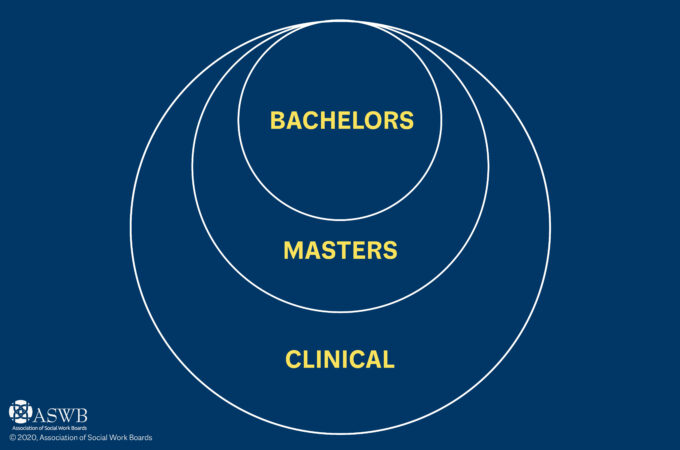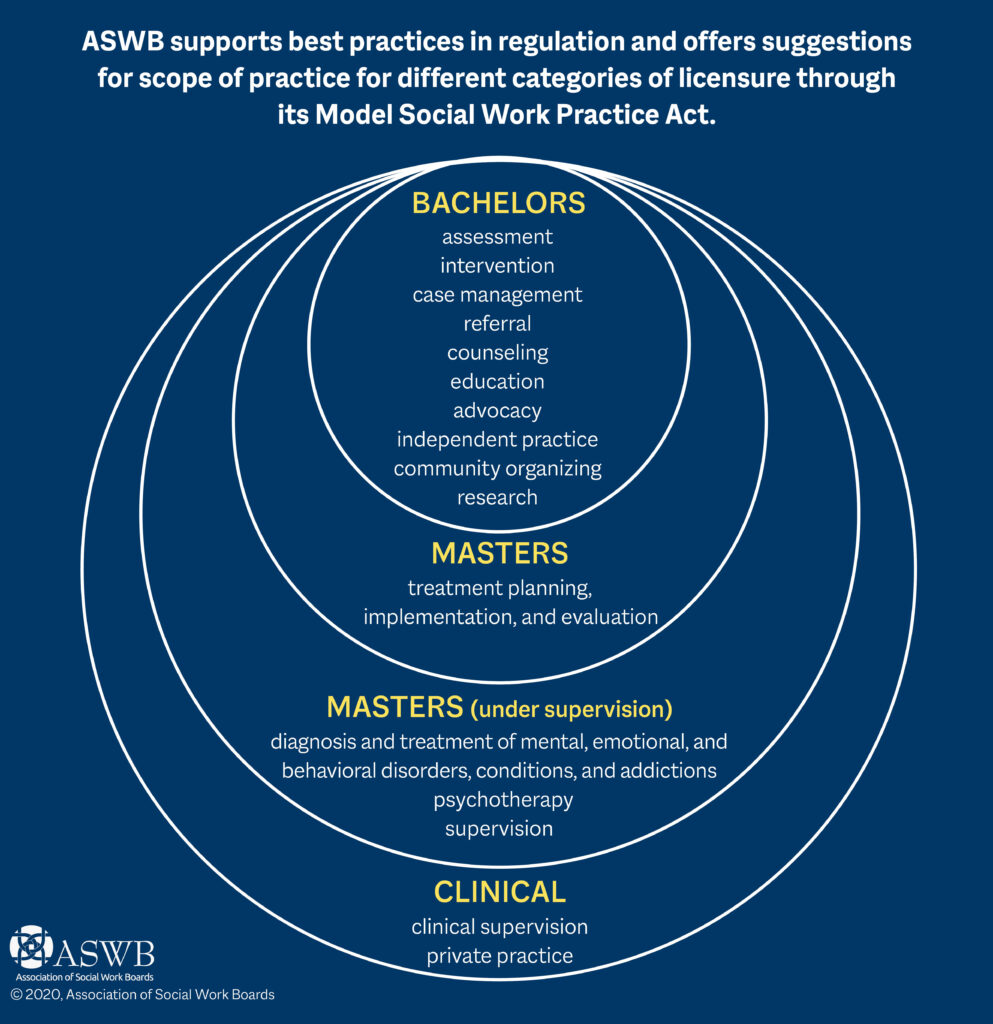
What is a social worker allowed to do? The laws that govern social work licensing define the activities social workers may perform. The list of permitted activities—called the “scope of practice”—depends on the social worker’s education, experience, and the competency demonstrated by passing a licensing exam.
Since laws are different in each state or province where social workers are licensed, scope of practice also varies. That’s why it’s important that when adding a license, a social worker find out what is permitted by the new location’s laws and regulations. Social workers need to know that even though the new license may require the same education, experience, and exam to obtain, it could allow or restrict different activities. There may also be different requirements, including a requirement to work under supervision.
The biggest difference found in scopes of practice across jurisdictions is in the requirement for ongoing supervision of bachelors and masters social workers after licensure. In some states, such as Arizona, bachelors social workers must be supervised at all times. In others, supervision is not required after a period of supervised practice experience. In Texas, for example, bachelors and masters social workers may begin to practice independently after completing a period of supervised practice. Still others, such as Alaska, allow bachelors social workers to practice independently with no supervision requirement.
Another difference is the ability to provide psychotherapy and mental health diagnoses. Clinical social workers are generally permitted to make mental health diagnoses, yet in three jurisdictions—Indiana, Alabama, and the U.S. Virgin Islands—a clinical social worker may not make a diagnosis. There are also provisions in some states regarding psychotherapy for bachelors and masters social workers.
It’s important for social workers adding a license in a new province or state to learn and follow scope of practice requirements when practicing there. ASWB’s laws and regulations database can help licensees with their responsibility to practice within their scope. The Model Social Work Practice Act is another good resource.
